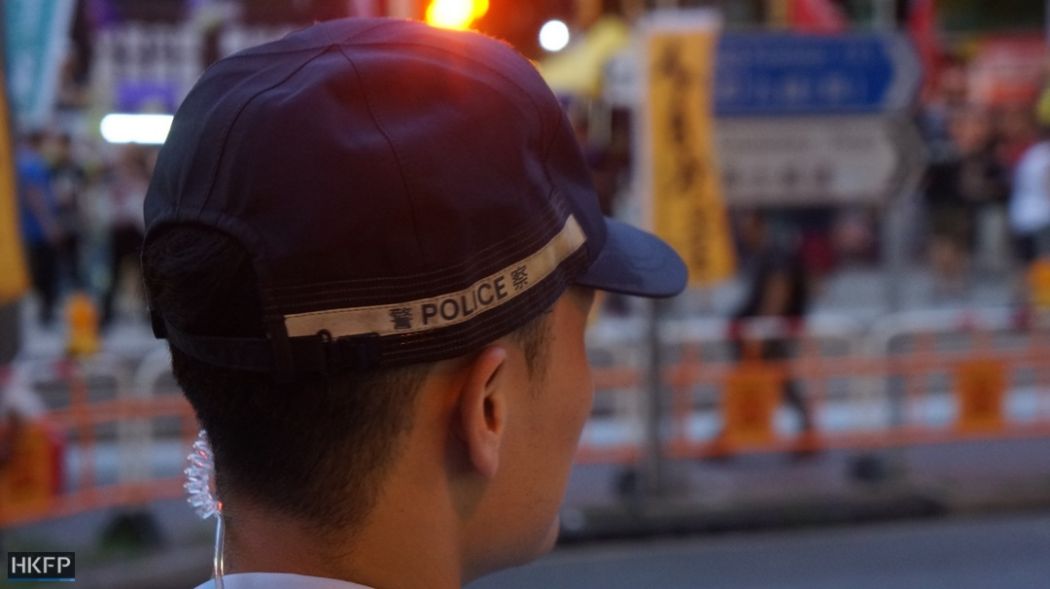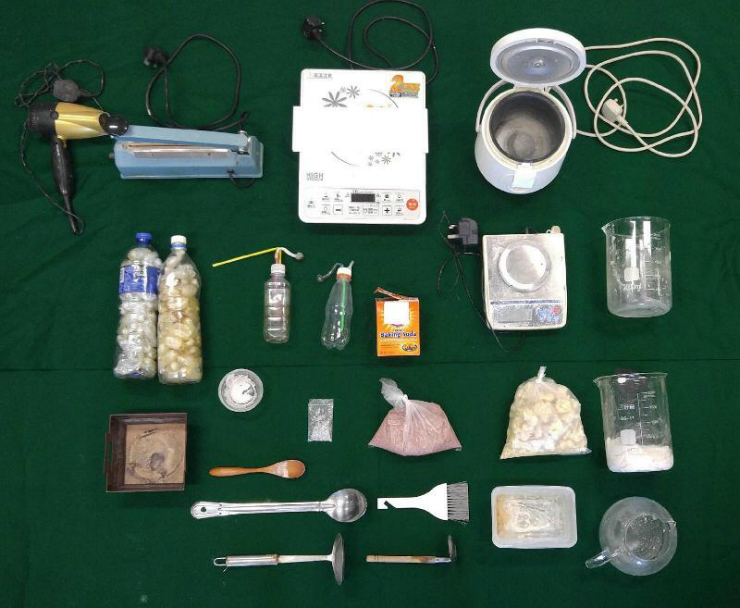A nasty moment watching the television the other night: I thought they said that a 34-year-old man had been sentenced to 39 years in prison after being caught in possession of a large quantity of drugs.
After much Googling I managed to track down a published version of the case and it seems either I or the reporter got the digits mixed up. The guy was 39 years old. The 34 years was his sentence. This seems rather a lot for what the judge described as a “minor role”.

What was really disturbing, though, was an interview after the case with a triumphant police person who thought “this heavy sentence would have a deterrent effect”.
Now we must not be too hard on this young man. No doubt there is no time at the Police College (as they now call it) for discussion of the finer points of sentencing policy. Nor, perhaps, should there be. Once the policeman has launched his suspect into the gaping maw of the legal machinery his job is done.
But the theory that crime is deterred by interminable sentences is of great antiquity. It is technically known as “general deterrence” theory and those who have studied it carefully agree that it is bilge.
The committee which ponders sentencing matters in New South Wales lamented the “legal fiction that imprisonment creates general deterrence,” and quoted with approval an academic study which concluded: “the reality is that general deterrence does not work… empirical research suggests that higher penalties do not act as disincentives to crime.”

The Institute of Criminology at Cambridge University, reviewing relevant research for the British Home Office, concluded that “…the studies reviewed do not provide a basis for inferring that increasing the severity of sentences generally is capable of enhancing deterrent effects.”
The Sentencing Project, in the US, noted that “existing evidence does not support any significant public safety benefit of the practice of increasing the severity of sentences by imposing longer prison terms. In fact, research findings imply that increasingly lengthy prison terms are counterproductive.”
The idea of deterrent sentences is also open to ethical objections. Ashworth, in Sentencing and Criminal Justice, says that “exemplary sentences, by heaping an undeserved portion of punishment on one offender in the hope of deterring others, are objectionable in that they penalise an individual in order to achieve a social goal.”
In other words the judge, in sentencing some small potato of the dope distribution network, should really be expected to say: “prisoner at the bar, your crime deserves a sentence of ten years, but in order to discourage other people from imitating you I am going to give you 30. Enjoy!”
It seems that, despite the evidence, judges are very keen on general deterrence as an explanation for sentencing in drugs cases. In a way, you can see why.

If you are a senior judge, most of your work involves civil disputes between rich people over large sums of money. Criminal cases will generally involve theft, violence or other abuses which attract general condemnation, and appear in the higher courts in their most serious forms.
But when you are obliged to ruin the life of the wretch in the dock for a crime which often comes down to not looking too closely at the parcel someone asked her to bring from Manila, then it helps if you can tell yourself that you are serving some higher social goal.
This is not an extreme example designed to arouse sympathy. The fact is that the overwhelming majority of drugs cases in Hong Kong concern people caught carrying. If the quantity is large, that means carrying for other people.
John Reading conducted a study of the 1,619 drug traffickers convicted in 2012-15, Of this miscreant multitude the organisers or gang members numbered only six. Not 60, not six per cent. Six. More than 90 per cent were couriers and the rest mostly “storekeepers” keeping the stuff in Hong Kong.
The law to which they were subjected is something of an international landmark. Of the 18 jurisdictions Reading surveyed, Hong Kong had the most severe sentences for trafficking. It was also one of the three jurisdictions in which the role or seniority of the offender was ignored in the sentencing process, and one of six which did not recognise previous good behaviour as a mitigating factor.
The average sentence in the survey period was nine years and nine months, the highest ran to more than three decades. There were 82 minors (people aged 16 can be tried in adult courts here) all but two of whom got prison sentences. One 16-year-old got 17 years.
Mr Reading, a Senior Counsel and former Deputy Director of Public Prosecutions, concluded that “The heavy sentences imposed for the offence in Hong Kong have not resulted in a significant reduction in drug trafficking cases over those years.”
Mr Reading goes no further and we must not put thoughts into his head. Interesting choice of post-retirement project, though.

I think we can conclude that the system is not doing any good. In fact it is doing a good deal of harm. It is unfair to the people caught, who are sentenced to disproportionate sentences which do no good to them or anyone else; it is unfair to the taxpayer, who stumps up for decades of expensive incarceration; it is unfair to prison staff, who can hardly be expected to produce reformative miracles on inmates who will not see the outside world until they have qualified for a green Octopus and Fruit Money.
This is also quite unnecessary. For a humane system which works, try this BBC documentary on prison life in Norway.
Clearly, the Hong Kong way of dealing with drugs cases, if you can call it that, has been operating for a long time. I do not see the slightest hope of changing it, which would require an implausible burst of enlightenment in either the Court of Appeal or the Legislative Council.
So the machinery continues to mangle individuals, like the luckless fellow last week. Your prayers, if you go in for that sort of thing, will not be wasted if you can direct a few in the direction of Mr Lui Wing-yip, who will be 70 when he comes out of prison, or perhaps, with the usual discount, 60. If you think sympathy is wasted on Mr Lui, he has a daughter aged eight, who is not going to see much of her Daddy for a long time.
